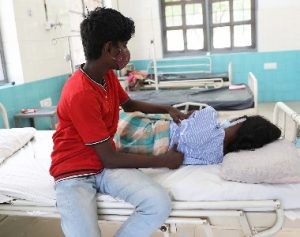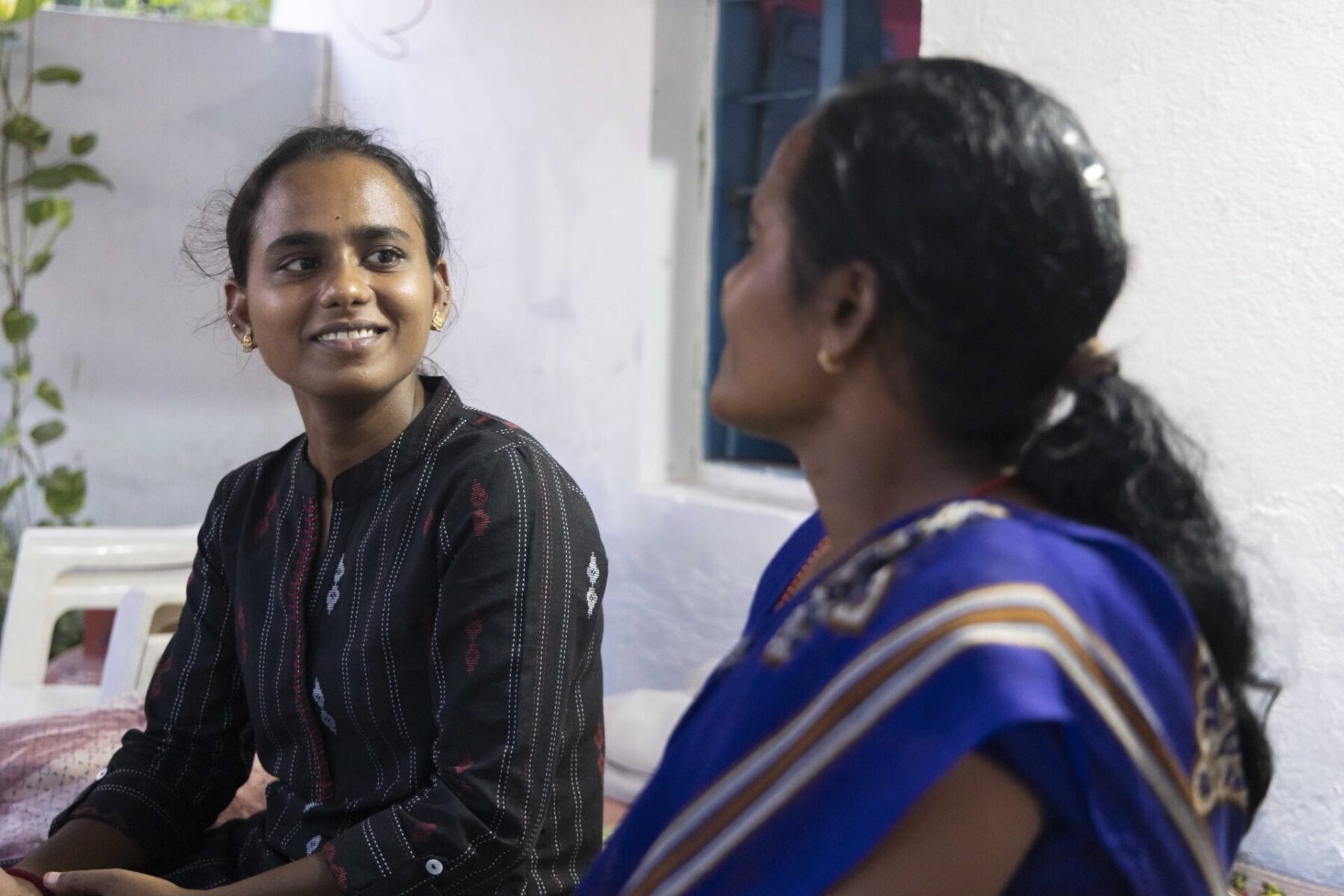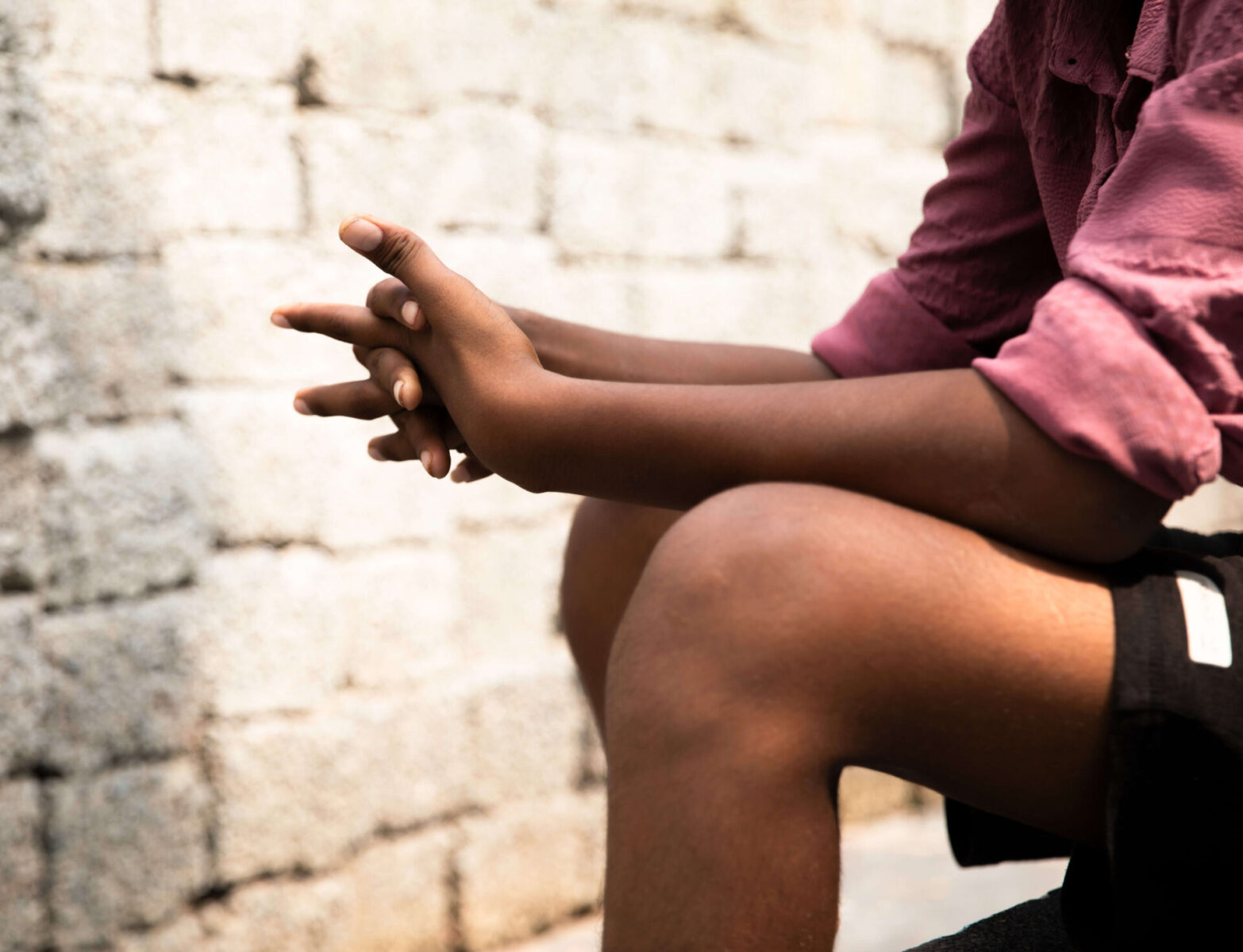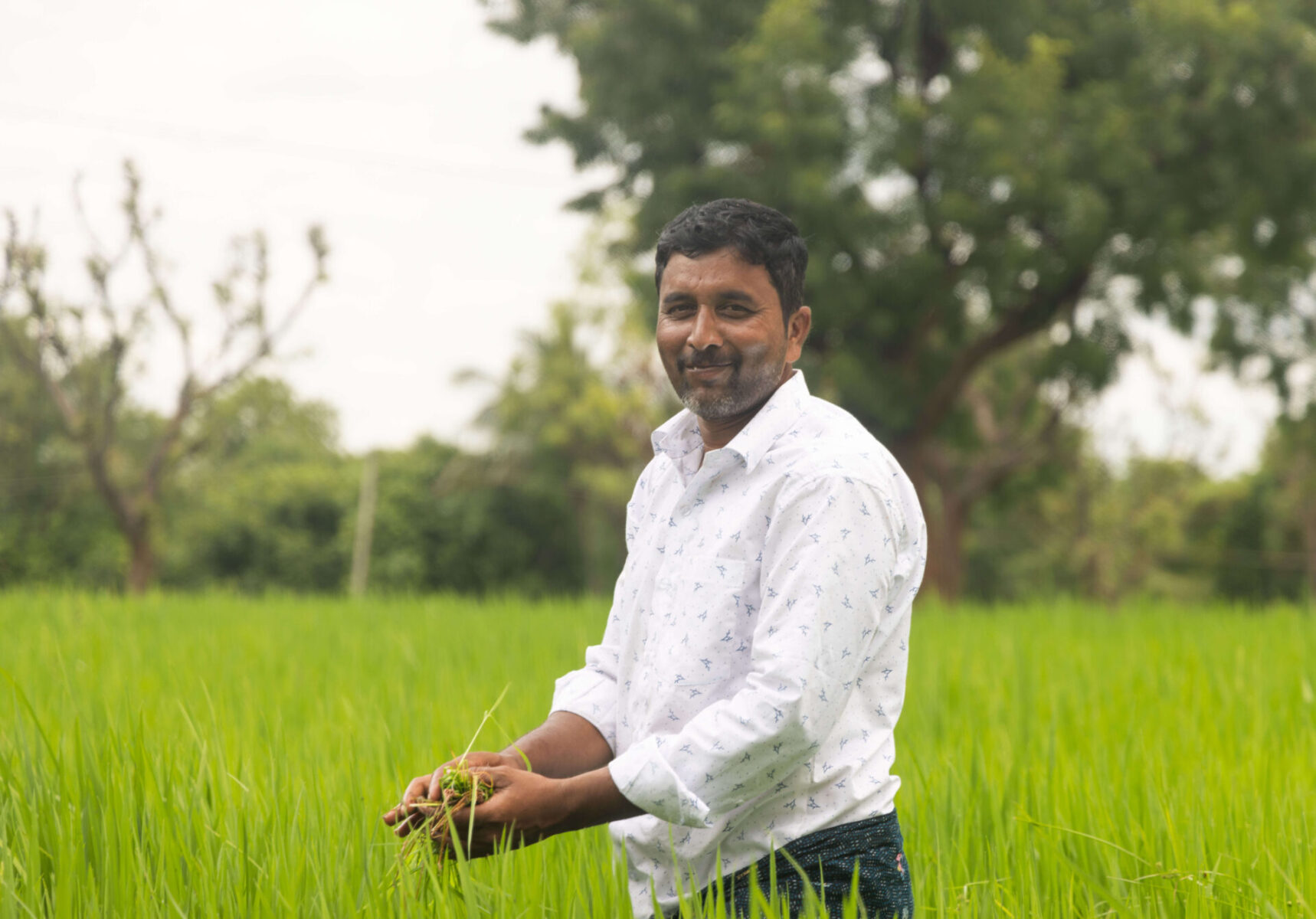-
India has the highest burden of TB patients in the world, with an estimated incidence of 2.7 million cases in 2019 and holds about 25% of the TB patients who develop drug resistance.
-
Over 2,400 tuberculosis (TB) patients have been treated at RDT Hospital for Infectious Diseases between 2019 and 2020.
-
This new shorter treatment is expected to improve the adherence to treatment and the recovery of the patients suffering from drug resistant tuberculosis.
Pushpa* was in a semi-unconscious state when she arrived by an ambulance to the RDT Hospital of Infectious Diseases accompanied by her son, who is 14 years old. It was not her first time at the facility and the doctors were able to rapidly assess the situation: She had relapsed (once again) after having dropped her medication. She is one out of the 130,000 estimated persons diagnosed with multidrug-resistant (MDR) tuberculosis (TB) in India, which holds about 25% of the TB patients who develop drug resistance (DR-TB) worldwide.
Pushpa is a single mother of two and used to work for a daily wage before contracting the disease. It has been months since she has had the strength to work.
Her first battle against TB started in 2015, but she did not emerge victorious. Although she seemed to have recovered, in 2017, she fell sick again. This time she was diagnosed with MDR-TB, and she faced an uphill battle to recover.
She has been in and out of RDT hospital on several occasions and after several relapses together with the stigma, she has spiralled into a depression.

Shunned by her family and friends, in extreme pain due to the side effects of a cocktail of medicines, the 30-year-old has spent the last few months lying at home, unable to wake up from the humble mat where she sleeps. “It was not like previous times. I thought that this was it. That she would die”, explains her son Ramesh*. “We came to the hospital with all we had, Rs. 100 in my pocket”, he adds.
“I have stopped taking the medicines on several occasions. They make me feel sick, nauseous and very weak. All my muscles hurt. When they diagnosed me with MDR-TB, besides a five-drugs cocktail, I was supposed to get a daily injection. I went to the local physician, and he said he would charge me Rs 50 per day for the service“, she explains in a broken voice.
“I got the injections initially for a few days, and then I stopped. On the days I could work, I was paid Rs. 100 so if I spent half of my daily wages on the injection, how would I buy food for my children“, she laments.
Pushpa and her sons survive on the small widowhood pension and the meagre salary her son gets working at odd jobs. She sold the little family gold she possessed years ago when she had to stop working due to the disease.
“Tuberculosis is fundamentally a disease of poverty; being poor increases the risk of acquiring TB infection and disease and having TB disease worsens poverty in TB-affected households”, adds Dr Jayaram, working at RDH Hospital of infectious Diseases since 2015.
However, this time the medical team at RDT Hospital had something new for Sujatha: A shorter all-oral novel treatment for multi-drug-resistant tuberculosis (MDR-TB) without injections.

RDT Hospital was appointed in September 2021 to be the first centre in Andhra Pradesh to provide this new shorter treatment that does not require injections. Only seven centres in the whole country have access to this particular treatment. Since then, more than 200 patients have received it.
“The side effects of the medication prevents TB patients from working. If we add the trouble of the injectables to the already severe adverse effects of the medication, the situation gets even more complicated. Although in India the TB treatment is free-of-cost, many patients especially in rural areas do not want to get injections because they are unable to find anyone to apply the injections for them or simply cannot afford to pay for the service”, expresses Dr Gerardo Alvarez Uria, who is leading the medical team at the hospital.
The bedaquiline based injection-free treatment is specifically designed to treat patients with TB resistant to Rifampicin, which is the most effective antibiotic to treat TB. Being able to provide an entirely oral regimen will relieve patients from the painful injections as well as reduce certain side effects such as hearing loss. The injectable drugs have left many patients deaf.
“This treatment is a big step towards improving the quality of life and adherence to treatment of MDR-TB patients and their families”, adds Dr Gerardo Alvarez Uria. “An entirely oral regimen allows the patients to take the medicines at their homes with no external support and reduces the stigma associated with the diseases”.
For patients like Pushpa, shifting to an entirely oral regimen can be a matter of life or death. Although it is too early to say that she is out of risk, this new medical discovery is a silver lining for Sujatha, her family, and the thousands of patients like her.
The first patient to receive the new injection-free treatment was Lakshmi*, a seven-year-old girl from Anantapur. “The new regimen is going to be especially important for children and adolescents, who are a frequently reluctant to receive daily shots. Injections make adherence to TB treatment much more difficult”, says Dr Gerardo Alvarez-Uria. After six months of treatment, this girl has increased weight and TB is not detectable in her sputum.

Improved diagnosis, improved treatment
In May 2021, RDT Mycobacteriology Laboratory in Bathalapalli HID was also certified to perform TB Phenotypic Drug Susceptibility Testing by liquid culture, which allows for the identification of a TB strain resistant to several TB treatments by evaluating its growth in the presence of these drugs.
“This kind of test, only performed in specialised labs, allows us to perform a more accurate diagnosis and thus provide a personalised treatment for patients according to the strain’s resistance”, explains Dr Raghu Reddy, head of Clinical Microbiology. This is the only non-government laboratory authorised to conduct such a test in Andhra Pradesh. The other two labs able to do so are run by the Government and are located in Vijayawada and Visakhapatnam.
*The names and personal identifying details have been changed to protect the privacy of individuals.







